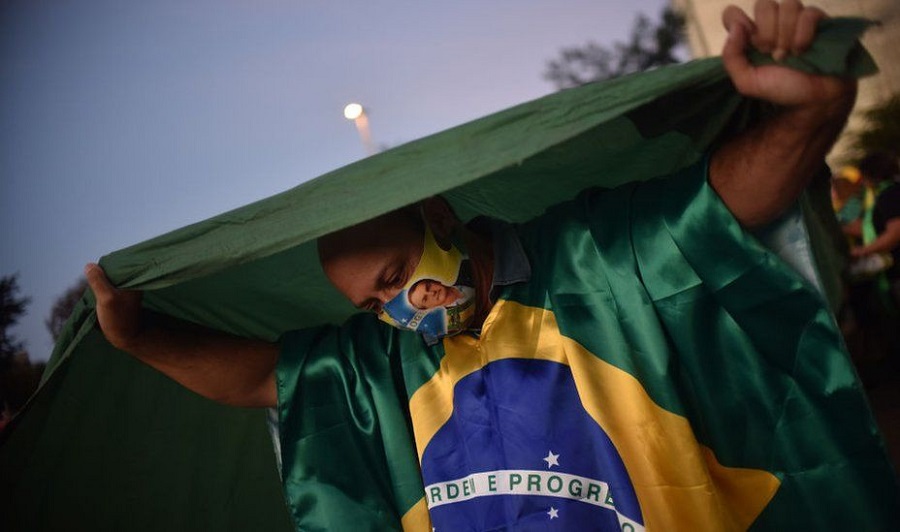RIO DE JANEIRO, BRAZIL – Amid the confusion that has made Brazil the country with the most deaths and daily coronavirus infections, discussions of the economic reforms that the country needs have moved into the background. But it is not for lack of wanting.
President Jair Bolsonaro intended to discuss with legislators in March a reform of the tax code and the privatization of some state companies. But with an average of nearly 4,000 deaths per day and the maximum pressure on the health care system, it is difficult to think about what comes next.

Congress has focused on voting for measures to facilitate the purchase of vaccines and basic health system supplies. Even the Minister of Economy, Paulo Guedes, has surrendered to the facts.
“Mass vaccination is the cheapest solution and has the greatest impact,” he said at a virtual event with businessmen at the end of March. Inoculations will be what starts the recovery of the economy, whose GDP fell 4.1% in 2020.
What at first glance seems sensible – care before the pandemic and then accommodate the reforms – is actually a side effect of spiteful disputes between political camps regarding the health crisis. With completely different views about the right measures to take between the right-wing government camp and a considerable part of state governments and mass media, the president insists on opposing social distancing measures for pandemic control.
“We have no adequate response to fight with the effects of the difficult pandemic right now,” says economist Monica de Bolle. “It was announced, predicted, but nothing was done,” she adds. In the last week, two ministers resigned, and the president replaced six.
Another sample of the power struggle in which Brazil finds itself is that the budget for this year was only approved in the Chamber of Deputies on March 25th and is still pending in the Senate. The proposal provides additional discretionary funds for legislators one year before the elections.
Despite the fiscal ceiling, this was possible, explaining Samar Maziad, a sovereign credit risk analyst for Brazil at Moody’s rating agency. This self-imposed limit on public spending offers investors and analysts a guarantee of Latin America’s largest economy’s fiscal solvency.
To exceed this ceiling, lawmakers have underestimated mandatory costs such as unemployment insurance and social security. The supposed reductions in spending add up to R$25 (US$4.5) billion. Paulo Guedes himself advised Bolsonaro not to approve this budget, which economists and specialists have described it as a “piece of fiction.”
The president of the Central Bank, Roberto Campos Neto, also warned about the budget’s lack of solidity in interviews last week: “Any uncertainty about the budget aggravates fiscal uncertainty.”
With information from El Pais/R7

